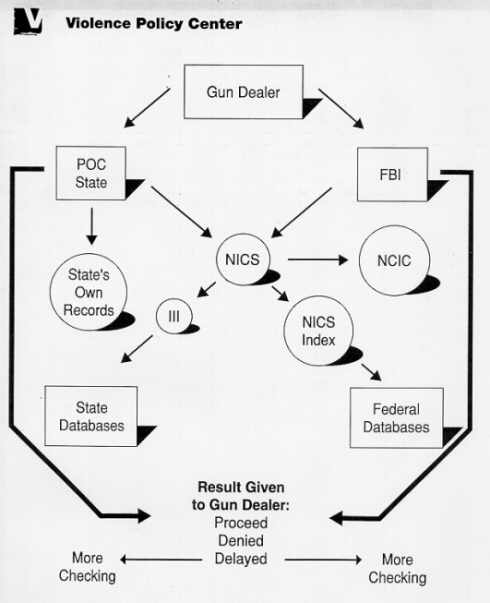|
|
|
|
|
|
|
| |||||||||||||||||||
Paper Tiger?Will the Brady Law Work After Instant Check?How Instant Check is Supposed to WorkThe Department of Justice describes the architecture of the new background check system as "monumental." This vast database system is known as "NICS," or the National Instant Criminal Background Check System. This section and the chart below provide a brief summary of how it is supposed to work. More extensive information is available from the Violence Policy Center.Under the new rules for the Brady Law, before a purchase may proceed, a federally licensed firearms dealer must conduct a background check. In most cases these checks will initially be conducted over the telephone, although some high-volume dealers will use computers and modems. In about a third of the states, some or all queries will be directed to a state's designated "point of contact," or "POC," which will then conduct a background check directly through NICS. Most states, however, have chosen not to participate in the system, or have chosen to designate POCs only for selected queries (for example, for handgun purchases but not long gun purchases). In these instances, the gun dealer will contact the Federal Bureau of Investigation directly, and the FBI will run the check through NICS. NICS links together two existing databases and one new database:

Back to Paper Tiger? Table of Contents
| |||||||||||||||||||
|
| |||||||||||||||||||